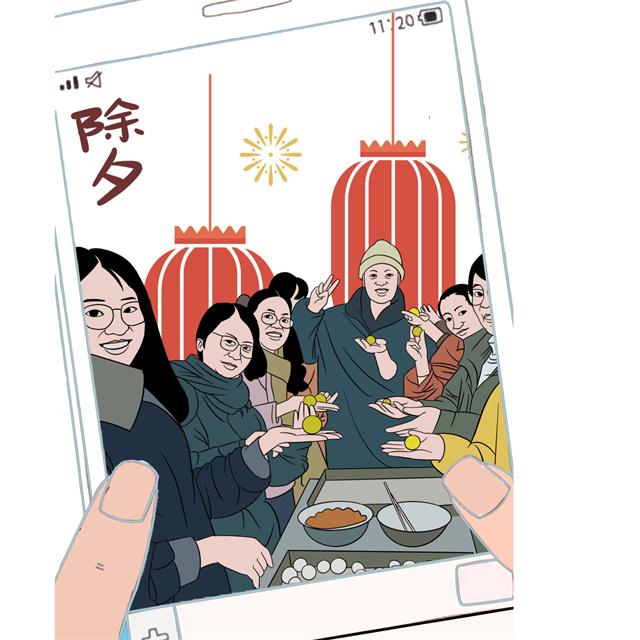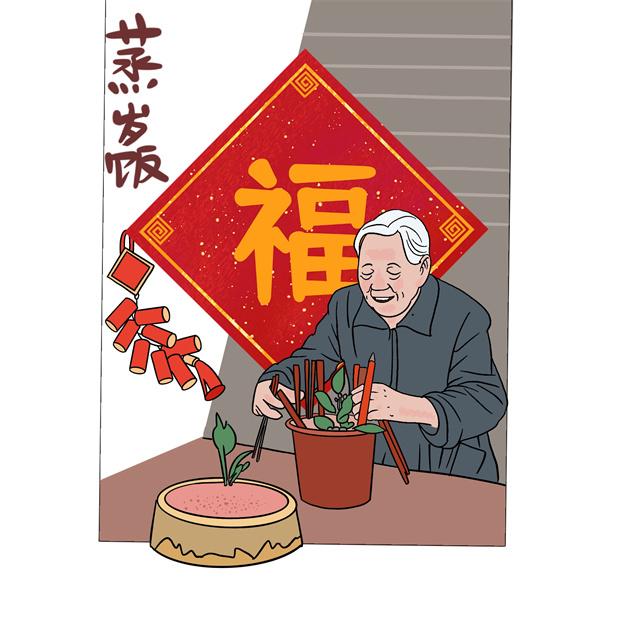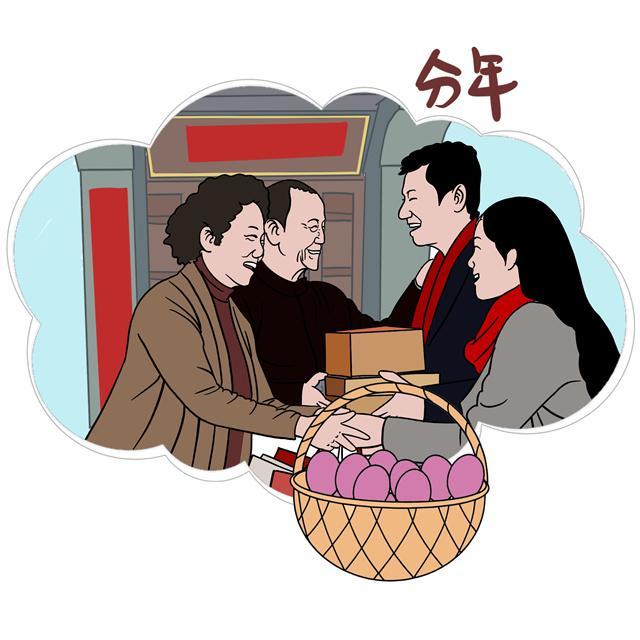Discover the rich tapestry of Pingtan's New Year traditions
en.ptnet.cn | Updated:2025-01-13 | Lin Kongbo, Stephanie
[Cartoon provided by Zhao Shuhe]
Pingtan, an island steeped in history and culture, celebrates the Chinese New Year with a vibrant array of customs that weave together the past and the present, creating a festive atmosphere replete with warmth and joy. As the island gears up for the most anticipated festival of the year, the traditional practices not only bring families together but also serve as a testament to Pingtan's rich cultural heritage.
According to Zhan Lixin, a Pingtan folk culture expert, the island's New Year traditions reflect people's hopes, beliefs, and respect for tradition. "Adults look forward to farming, while children eagerly anticipate the New Year," Zhan noted, encapsulating the essence of the festival's allure.
The preparatory phase begins with a thorough house cleaning, a ritual known as "sweeping dust (扫尘)," starting from the 24th day of the lunar December. Every household meticulously scrubs every corner of their abode, aiming to welcome the New Year with a spotless and revitalized space. The streets of Pingtan buzz with activity as families stock up on essentials, with homemakers expertly crafting rice cakes(年糕) and steamed sponge cakes(发糕) , symbolizing progress and prosperity, respectively.

[Cartoon provided by Zhao Shuhe]
Zhan elaborated on the significance of the "New Year's meal (岁饭)," a steaming ritual that takes place on New Year's Eve but is only consumed on the first day of the New Year, marking the transition from the old to the new. "It's not just about the food; it's about the symbolism and the shared experience," he said.
The New Year's Eve feast (团年饭), dominated by seafood delicacies, adheres to a unique custom: the number of dishes must be odd, avoiding the number ten out of respect for ancestral offerings. Following dinner, elders hand out red envelopes filled with money to unmarried children, while the family engages in heartfelt conversations, recounting the past year's events and envisioning the future.
The first morning of the New Year is dedicated to eating "longevity noodles (长寿面)," known locally as Xian Mian, accompanied by two "peaceful eggs (太平蛋)," symbolizing longevity, peace, and prosperity. Youngsters then embark on a series of visits to relatives and friends, exchanging warm greetings and enjoying treats prepared by their hosts.

[Cartoon provided by Zhao Shuhe]
The second day of the New Year holds special significance for married daughters, who traditionally return to their parents' home. This reunion, known as "going back to one's mother's home (回娘家)," underscores the importance of family bonds.
As the festivities continue, the third day sees more visits and social gatherings (社交), while the fourth day marks the resumption of work and daily activities (复工). Farmers and fishermen, revitalized by the festive break, return to their fields and seas with renewed vigor.
Pingtan's New Year traditions are a testament to the island's deep-rooted cultural identity, where every custom carries a story and every ritual embodies a wish for a prosperous and harmonious future. In the words of Zhan Lixin, "These traditions are not just about following rules; they are about preserving our heritage and nurturing a sense of belonging among generations."

 Fujian Public Security Registration Code: 35012802000271
Fujian Public Security Registration Code: 35012802000271